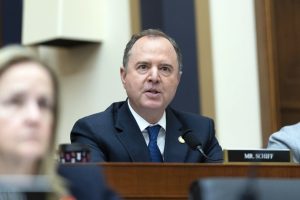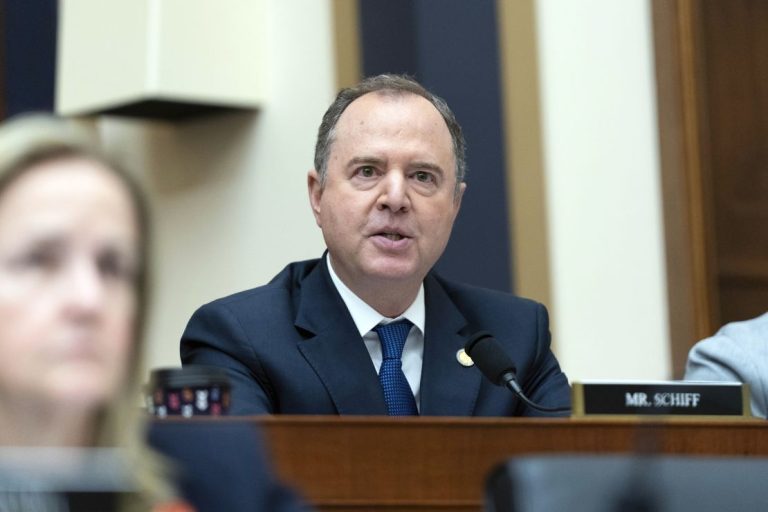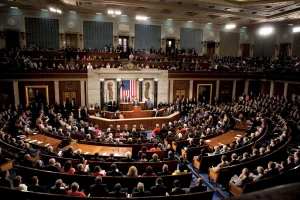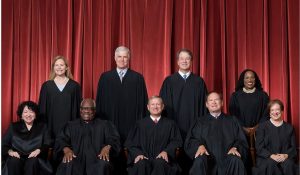The release of extensive correspondence between economist Lawrence H. Summers and the late financier Jeffrey Epstein has triggered a sweeping political and institutional reckoning, marking one of the most consequential developments to emerge from the newly unveiled archives connected to the long-disputed Epstein network. Summers, a former Harvard University president, former U.S. Treasury Secretary, and a long-time influential voice in Democratic policymaking circles, has announced that he is stepping back from numerous public-facing roles in an effort to, in his words, “rebuild trust and repair relationships.”
His decision comes as part of the broader fallout from the release of seven years’ worth of messages exchanged between him and Epstein — communications that extended well past Epstein’s initial conviction and up until the day before Epstein’s 2019 arrest on federal sex-trafficking charges. The disclosure has reignited public debate not only about Epstein’s reach and influence but also about the judgment exercised by senior leaders across academia, government, and the private sector who maintained contact with him.
A Relationship Reexamined
The newly released messages offer a more detailed view of a relationship that had long been speculated about but never fully documented. The correspondence shows that Summers and Epstein remained in active communication for years, discussing personal matters, professional opportunities, and intellectual interests. The exchanges reveal a striking level of familiarity, with Summers at times seeking advice or confiding in Epstein about private matters relating to his personal life.
One set of messages stands out for its deeply personal tone: Summers discussed pursuing a romantic relationship with a woman he referred to as a mentee, and Epstein responded with guidance, encouragement, and even self-descriptions as Summers’ “wing man.” The messages continue into mid-2019, culminating in an exchange on July 5 of that year — just one day before Epstein was arrested on new federal charges.
These revelations have triggered intense scrutiny not only because of Epstein’s criminal history but also because they show Summers actively engaging in personal and professional dialogue with Epstein during years when the financier’s reputation had already been deeply tarnished by his 2008 conviction. Critics of Summers argue that his decision to maintain this contact reflects profoundly poor judgment inconsistent with the leadership roles he occupied within academia and public policy.
Summers Responds: Contrition and Consequences
In a statement issued after the correspondence became public, Summers expressed remorse for continuing his relationship with Epstein. He described his actions as a “misguided decision” and acknowledged the harm the revelations caused to both his personal relationships and his professional credibility. His statement emphasized accountability, noting that stepping back from public duties is one part of a larger effort to regain the trust of colleagues, students, and the public.
Summers’ announcement, however, stops short of a full resignation from his institutional posts. He will continue to serve as a University Professor at Harvard and will maintain his role as director of the Mossavar-Rahmani Center for Business and Government at the Harvard Kennedy School. These positions ensure that he remains deeply involved in Harvard’s academic community, although his visibility in external spheres is expected to diminish significantly.
Nonetheless, the repercussions of the scandal have reached far into his professional commitments. Summers has begun withdrawing from a slate of high-profile roles in organizations that had relied on his expertise for policy guidance and strategic input. These include prominent think tanks, advisory boards, and corporate or institutional partnerships in which he had played influential advisory roles. His retreat from these positions signals both his recognition of the seriousness of the revelations and the pressures mounting from institutions wary of reputational entanglements.
Institutional and Political Pressure Intensifies
The ramifications of the Epstein correspondence extend beyond Summers himself. Harvard University has initiated an internal review of Summers’ relationship with Epstein, reflecting an institutional desire to fully understand the extent of Epstein’s influence within academic circles. This review is expected to examine not only the content of the messages but also any past interactions Epstein may have had with Harvard programs, faculty, fundraising efforts, or research initiatives.
Political observers note that the timing of the revelations has amplified their impact. With congressional committees currently releasing massive collections of Epstein-related documents and with the public intensely focused on allegations spanning decades and involving numerous high-profile individuals, every new disclosure adds momentum to calls for full transparency. Summers, given his stature within Democratic policymaking circles, naturally attracted significant attention.
Some critics within his own party have sharply rebuked his conduct. They argue that it underscores systemic issues regarding elite networks and the willingness of influential figures to overlook or rationalize inappropriate associations. Others have urged caution, noting that the release of personal correspondence — while undeniably troubling — does not equate to evidence of criminal activity. Nevertheless, the political and reputational damage is unmistakable.
A Parallel Controversy: Private Emails and Institutional Misconduct
The fallout from the Epstein disclosures extends even further, intersecting with a separate controversy involving Representative Jamie Raskin. The ranking member of the House Judiciary Committee faced a wave of criticism after he published emails written by Ghislaine Maxwell during her incarceration. These emails had been obtained without authorization by staff at a federal prison, who were subsequently fired.
Maxwell’s attorney described Raskin’s publication of the correspondence as an abuse of power, arguing that it violated constitutional protections afforded to prisoners. The emails themselves painted a dramatically different picture of Maxwell’s experience at a Texas prison camp compared to her previous facility, highlighting relatively positive conditions such as cleanliness, improved food quality, and a sense of personal safety. Raskin’s critics contend that releasing these messages served little legitimate public purpose and instead represented a misuse of congressional authority.
This secondary controversy has added yet another layer to the national conversation about accountability, ethics, and transparency. Although unrelated to Summers’ relationship with Epstein, the overlapping timing has contributed to a broader narrative about congressional conduct and the responsibilities of public figures in handling sensitive or private materials.
The Political Landscape: A Nation Grappling With Unfinished Questions
The Epstein disclosures, including the Summers correspondence, have reinvigorated longstanding concerns about the extent of Epstein’s connections and the nature of his influence. For years, the public has been confronted with allegations, speculation, and incomplete information about the financier’s network of associates. As new materials emerge, they are increasingly reshaping public understanding of how widespread Epstein’s involvement was within elite institutions.
Summers’ decision to step back from public positions is seen by many analysts as a recognition that the unfolding process of document releases is far from over. Rather than fighting the tide, he has chosen to reduce his visibility, thereby minimizing the potential for ongoing distraction.
The episode has also reignited debate over how leaders in academia and government can maintain professional distance from individuals with widely known histories of misconduct. Many institutions are confronting the uncomfortable reality that certain figures continued to interact with Epstein long after his criminal notoriety was well established. The correspondence reflects not merely a lapse in judgment on one individual’s part but part of a larger pattern of prominent figures either underestimating or ignoring the potential consequences of association.
Looking Ahead: What This Means for Institutions and Public Trust
The controversy surrounding Summers highlights the complex intersection between personal judgment, public responsibility, and institutional reputation. It raises fundamental questions about how leaders should navigate relationships with wealthy or influential individuals whose backgrounds include serious criminal conduct. It also underscores the importance of transparency in maintaining public trust — not only trust in individuals but trust in the institutions they represent.
For Harvard, the inquiry into Summers’ interactions may lead to new guidelines or reforms regarding external engagements and donor relationships. For policymakers, the episode may prompt renewed discussions on ethics oversight and the handling of sensitive or potentially compromising communications. For the public, the unfolding story serves as a reminder that the fallout from the Epstein case is far from concluded and that its impact across institutions will continue to evolve.
Conclusion
Lawrence Summers’ decision to step back from public roles marks a significant development in the ongoing fallout from the Epstein files. While he retains his positions within Harvard, the withdrawal from other prominent roles signals the gravity with which he views the revelations and the broader implications they carry.
This moment reflects a broader accountability reckoning as documents continue to emerge and as scrutiny intensifies around public figures who maintained relationships with Epstein long after his criminal actions were known. The inquiry into Summers’ conduct, the political backlash surrounding multiple lawmakers, and the intense public focus on transparency all point toward a continuing national conversation — one that is reshaping expectations for ethical conduct at the highest levels of academia, politics, and public policy.
As more disclosures come to light, the contours of this dialogue will only grow sharper, forcing institutions and individuals alike to confront the consequences of past associations and the responsibilities that accompany positions of authority.

Emily Johnson is a critically acclaimed essayist and novelist known for her thought-provoking works centered on feminism, women’s rights, and modern relationships. Born and raised in Portland, Oregon, Emily grew up with a deep love of books, often spending her afternoons at her local library. She went on to study literature and gender studies at UCLA, where she became deeply involved in activism and began publishing essays in campus journals. Her debut essay collection, Voices Unbound, struck a chord with readers nationwide for its fearless exploration of gender dynamics, identity, and the challenges faced by women in contemporary society. Emily later transitioned into fiction, writing novels that balance compelling storytelling with social commentary. Her protagonists are often strong, multidimensional women navigating love, ambition, and the struggles of everyday life, making her a favorite among readers who crave authentic, relatable narratives. Critics praise her ability to merge personal intimacy with universal themes. Off the page, Emily is an advocate for women in publishing, leading workshops that encourage young female writers to embrace their voices. She lives in Seattle with her partner and two rescue cats, where she continues to write, teach, and inspire a new generation of storytellers.









